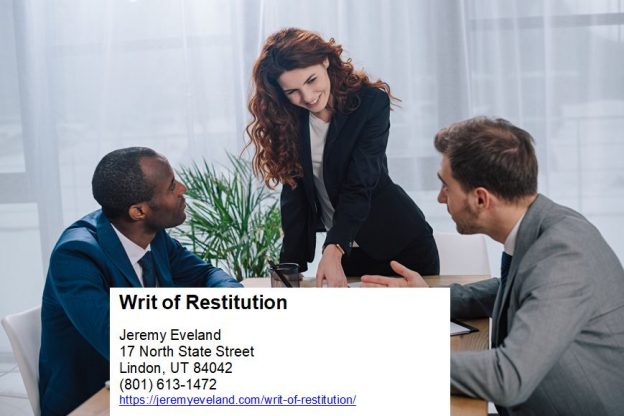-
Legal Topics
“Start Your Business Right – Get the License You Need!”
Introduction
Starting a business can be an exciting and rewarding experience, but it can also be a daunting task. One of the first questions you may have is whether or not you need a license to start a business. Generally, yes, you do need a license. The more in-depth answer to this question depends on the type of business you are starting and the laws in your state or locality. In this article, we will discuss the different types of licenses you may need to start a business, as well as the steps you need to take to obtain them. We will also provide some tips on how to make the process of obtaining a license easier.
How to Avoid Common Mistakes When Starting a Business Without a License
Starting a business without a license can be a risky endeavor, but it is possible to do so successfully if you take the right steps. Here are some tips to help you avoid common mistakes when starting a business without a license:
1. Research the local laws and regulations. Before you start your business, make sure you understand the local laws and regulations that apply to your business. This will help you avoid any legal issues that could arise from operating without a license.
2. Get the necessary permits. Depending on the type of business you are starting, you may need to obtain certain permits or licenses. Make sure you understand what permits or licenses you need and obtain them before you start your business.
3. Have a business plan. Having a business plan is essential for any business, regardless of whether or not you have a license. A business plan will help you stay organized and focused on your goals.
4. Get the right insurance. Insurance is an important part of any business, and it is especially important when you are operating without a license. Make sure you get the right insurance coverage for your business to protect yourself and your customers.
5. Stay organized. Staying organized is key to running a successful business. Make sure you keep accurate records of your finances, customers, and other important information.
By following these tips, you can avoid common mistakes when starting a business without a license. With the right preparation and planning, you can start a successful business without a license.
What Are the Legal Requirements for Starting a Business?
Starting a business can be an exciting and rewarding endeavor, but it is important to understand the legal requirements that must be met in order to ensure the business is compliant with all applicable laws. Depending on the type of business, the legal requirements may vary, but there are some common steps that must be taken in order to get a business up and running.
First, it is important to choose the type of business entity that best suits the needs of the business. Common business entities include sole proprietorships, partnerships, limited liability companies (LLCs), and corporations. Each type of entity has its own advantages and disadvantages, so it is important to research the different options and choose the one that best fits the business’s needs.
Second, the business must obtain any necessary licenses or permits. Depending on the type of business, this may include a business license, a professional license, or a permit to operate in a certain area. It is important to research the specific requirements for the business’s location and industry in order to ensure all necessary licenses and permits are obtained.
Third, the business must register with the appropriate government agencies. This may include registering with the Internal Revenue Service (IRS) for federal taxes, registering with the state for state taxes, and registering with the local government for any local taxes or fees.
Fourth, the business must comply with any applicable employment laws. This may include obtaining workers’ compensation insurance, paying minimum wage, and providing certain benefits to employees.
Finally, the business must comply with any other applicable laws and regulations. This may include environmental regulations, consumer protection laws, and zoning laws.
By understanding and complying with the legal requirements for starting a business, entrepreneurs can ensure their business is compliant with all applicable laws and regulations.
What Are the Benefits of Having a Business License?
Having a business license is an important step for any business owner. A business license is a legal document that grants permission to operate a business within a particular jurisdiction. It is typically issued by the local government and is required for any business that sells goods or services.
There are several benefits to having a business license. First, it provides legitimacy to your business. A business license shows that your business is legitimate and has been approved by the local government. This can help to build trust with customers and other businesses.
Second, having a business license can help to protect your business. It ensures that you are following all applicable laws and regulations. This can help to reduce the risk of legal action against your business.
Third, having a business license can help to increase your business’s visibility. It can help to attract customers and other businesses to your business. This can help to increase your sales and profits.
Finally, having a business license can help to reduce your taxes. Depending on the jurisdiction, having a business license may qualify you for certain tax deductions or credits. This can help to reduce your overall tax burden.
In conclusion, having a business license is an important step for any business owner. It provides legitimacy to your business, helps to protect it, increases its visibility, and can help to reduce your taxes.
How to Obtain a Business License for Your Startup
Starting a business can be an exciting and rewarding experience, but it is important to make sure that you are following all of the necessary steps to ensure that your business is legally compliant. One of the most important steps is obtaining a business license. A business license is a legal document that grants permission to operate a business within a certain jurisdiction.
The process of obtaining a business license will vary depending on the type of business you are starting and the jurisdiction in which you are operating. Generally, you will need to contact the local government office responsible for issuing business licenses in your area. You may need to provide information such as the type of business you are starting, the address of the business, and the names of any owners or partners. You may also need to provide proof of insurance, a business plan, and other documents.
Once you have submitted the necessary paperwork, you will need to pay the applicable fees. Depending on the jurisdiction, these fees may be a one-time fee or an annual fee. Once the fees have been paid, you will receive your business license.
It is important to note that some jurisdictions may require additional permits or licenses in order to operate a business. For example, if you are starting a restaurant, you may need to obtain a food service license. Additionally, some businesses may need to obtain a special license or permit in order to operate legally.
Obtaining a business license is an important step in starting a business. It is important to make sure that you are following all of the necessary steps to ensure that your business is legally compliant. By taking the time to research the requirements for obtaining a business license in your area, you can ensure that your business is properly licensed and ready to start operating.
What Types of Businesses Require a License?
Many types of businesses require a license in order to legally operate. Depending on the type of business, the requirements for obtaining a license may vary. Generally, businesses that provide services or sell goods to the public must obtain a license.
Businesses that provide services such as beauty salons, barbershops, massage therapy, and tattoo parlors typically require a license. These businesses must meet certain standards and regulations set by the state or local government in order to obtain a license.
Retail businesses such as stores, restaurants, and bars must also obtain a license in order to legally operate. These businesses must meet certain health and safety standards in order to obtain a license.
Businesses that provide professional services such as accounting, legal services, and medical services must also obtain a license. These businesses must meet certain standards and regulations set by the state or local government in order to obtain a license.
Businesses that manufacture or distribute products must also obtain a license. These businesses must meet certain standards and regulations set by the state or local government in order to obtain a license.
Finally, businesses that provide transportation services such as taxi services, limousine services, and bus services must also obtain a license. These businesses must meet certain standards and regulations set by the state or local government in order to obtain a license.
In conclusion, many types of businesses require a license in order to legally operate. Depending on the type of business, the requirements for obtaining a license may vary. Generally, businesses that provide services or sell goods to the public must obtain a license.
Q&A
1. Do I need a license to start a business?
Yes, depending on the type of business you are starting, you may need to obtain a license or permit from your local government. This could include a business license, a professional license, or a special permit. It is important to research the specific requirements for your business before you start.
2. What type of license do I need?
The type of license you need will depend on the type of business you are starting. For example, if you are starting a restaurant, you may need a food service license. If you are starting a retail store, you may need a sales tax license.
3. How do I get a license?
You can usually obtain a license or permit from your local government. You may need to fill out an application and provide documentation such as proof of identity, proof of business address, and proof of insurance.
4. How much does a license cost?
The cost of a license or permit will vary depending on the type of business you are starting and the jurisdiction in which you are operating. Generally, the cost of a license or permit will range from a few hundred dollars to several thousand dollars.
5. What happens if I don’t get a license?
If you do not obtain the necessary licenses or permits, you may be subject to fines or other penalties. Additionally, you may not be able to legally operate your business. It is important to research the specific requirements for your business and obtain the necessary licenses or permits before you start.
Areas We Serve
We serve individuals and businesses in the following locations:
Salt Lake City Utah
West Valley City Utah
Provo Utah
West Jordan Utah
Orem Utah
Sandy Utah
Ogden Utah
St. George Utah
Layton Utah
South Jordan Utah
Lehi Utah
Millcreek Utah
Taylorsville Utah
Logan Utah
Murray Utah
Draper Utah
Bountiful Utah
Riverton Utah
Herriman Utah
Spanish Fork Utah
Roy Utah
Pleasant Grove Utah
Kearns Utah
Tooele Utah
Cottonwood Heights Utah
Midvale Utah
Springville Utah
Eagle Mountain Utah
Cedar City Utah
Kaysville Utah
Clearfield Utah
Holladay Utah
American Fork Utah
Syracuse Utah
Saratoga Springs Utah
Magna Utah
Washington Utah
South Salt Lake Utah
Farmington Utah
Clinton Utah
North Salt Lake Utah
Payson Utah
North Ogden Utah
Brigham City Utah
Highland Utah
Centerville Utah
Hurricane Utah
South Ogden Utah
Heber Utah
West Haven Utah
Bluffdale Utah
Santaquin Utah
Smithfield Utah
Woods Cross Utah
Grantsville Utah
Lindon Utah
North Logan Utah
West Point Utah
Vernal Utah
Alpine Utah
Cedar Hills Utah
Pleasant View Utah
Mapleton Utah
Stansbury Par Utah
Washington Terrace Utah
Riverdale Utah
Hooper Utah
Tremonton Utah
Ivins Utah
Park City Utah
Price Utah
Hyrum Utah
Summit Park Utah
Salem Utah
Richfield Utah
Santa Clara Utah
Providence Utah
South Weber Utah
Vineyard Utah
Ephraim Utah
Roosevelt Utah
Farr West Utah
Plain City Utah
Nibley Utah
Enoch Utah
Harrisville Utah
Snyderville Utah
Fruit Heights Utah
Nephi Utah
White City Utah
West Bountiful Utah
Sunset Utah
Moab Utah
Midway Utah
Perry Utah
Kanab Utah
Hyde Park Utah
Silver Summit Utah
La Verkin Utah
Morgan Utah
Business Attorney Consultation
When you need help from a Business Attorney, call Jeremy D. Eveland, MBA, JD (801) 613-1472 for a consultation.
Jeremy Eveland
17 North State Street
Lindon UT 84042
(801) 613-1472
Related Posts
Business Lawyer Saratoga Springs Utah
The Role of Business Law in Protecting Minority Shareholder Rights
What Are The 4 Different Types of Business Law?
Business Lawyer Washington Utah
Business Lawyer South Salt Lake Utah
Legal Requirements for Utah Technology Startups
Business Lawyer Farmington Utah
Due Diligence For Buying A Utah Business
Understanding Utah’s Labor Laws
Business Lawyer North Salt Lake Utah
Product Liability Laws in Utah
Preventing Cybersecurity Breaches
Business Lawyer North Ogden Utah
Business Lawyer Brigham City Utah
Mastering Business Law: Key Essentials For Success
Business Lawyer Centerville Utah
Shareholder Agreements in Utah
Business Lawyer Hurricane Utah
Business Lawyer South Ogden Utah
Last Will and Testament Lawyer
Business Lawyer Heber City Utah





